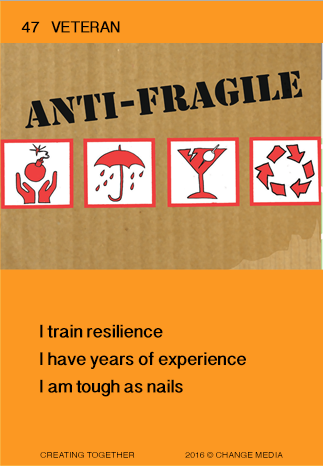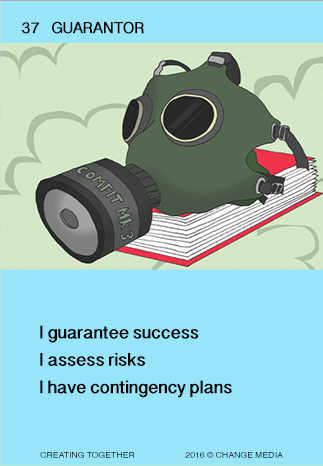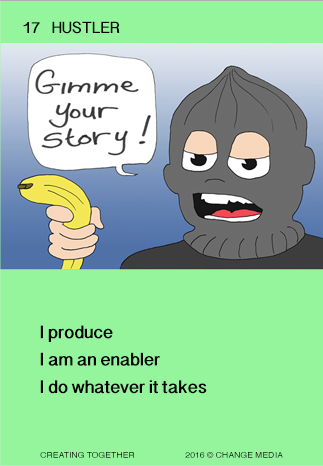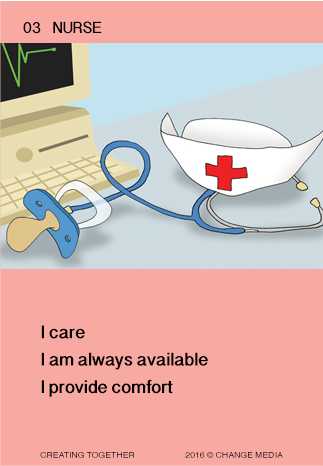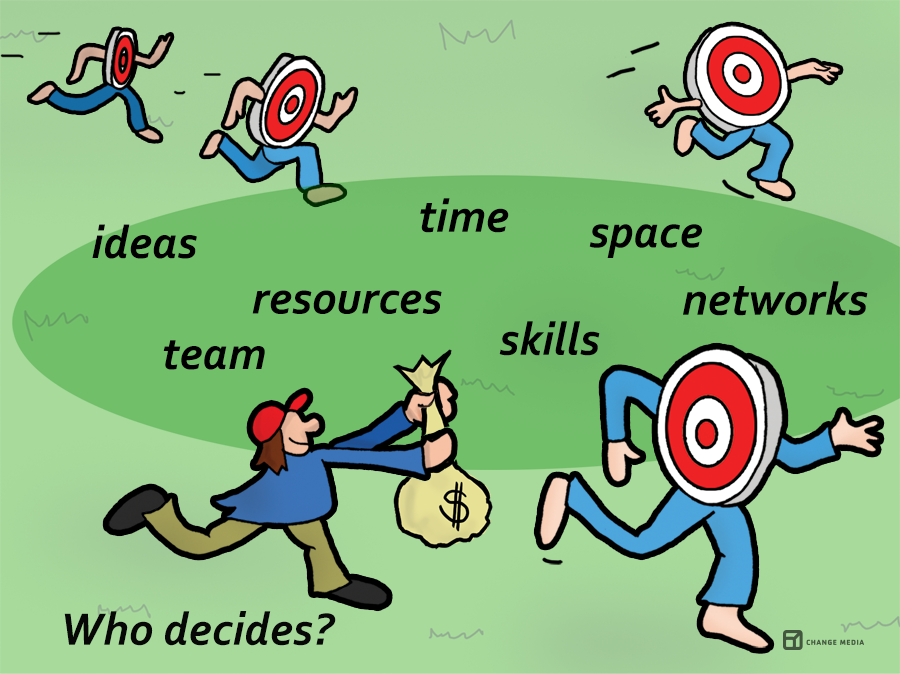Share
How can we collectively care for the Commons?
How do you share?
Our human need for Commons
Who owns this planet, oceans, air, lands, minerals, knowledge? How do we enjoy and care for them together?
Our imagination and our stories are constantly shifting commons. We see playful critical literacy as a key ingredient to celebrate, reclaim and share them differently, which equips us to creatively care for the other commons.
“Nothing is yours. It is to use. It is to share. If you will not share it, you cannot use it.” - Ursula K. Le Guin, The Dispossessed
Challenge the Enforcers
The Enforcers attempt to patrol, but enforce - on whose behalf?
This gang has muscle and treat our shared spaces as private interests they must control and protect. They are at their most powerful when they can use colonizing tactics of divide and rule, isolating pockets of resistance. They are often macho, anti-fragile, battle hardened and attracted to crisis, and struggle to share their emotions.
The myth of unlimited growth supports the Enforcers: Without limits, the Hustlers can push ahead and grow their fiefdoms. The rise of authoritarian populism has been building steadily over decades, breeding anxieties, xenophobia, prejudice, misogyny and extractivist, non-caring mindsets. We are now witnessing the break down of trust in old modes of communication, at the same time, our collective desires, our dreams, our commons, are increasingly owned by private, global corporations.
What’s at stake is enormous. Our ability as diverse people living on this planet, to collectively imagine, reflect, disrupt and reframe. Our very existence is under threat, and that threat divides us. Atomised, our livelihoods, our commonalities, are taken, defunded, not defended – and the privileged myth ‘it won’t hit me’ plays tricks on our minds. Across space and time humans have experimented with humane, human exchanges, this unprecedented, multi-pronged assault of privatized, globalized, neo-colonial debt slavery is a relatively new arrival and it is fallible.
“You are forgiven for your happiness and your successes only if you generously consent to share them.” - Albert Camus
Questions
Who decides?
How does it feel to be tough? What other emotions are there? What do I do to relax? How do I know I made a difference?
What are my assumptions? Who cares for me? What other ways are available to succeed?
What happens when I get hurt? What structural violence might influence my success? What risks am I taking?
What would a soft approach be like? How can we equitably share assets and stories / distribution?


